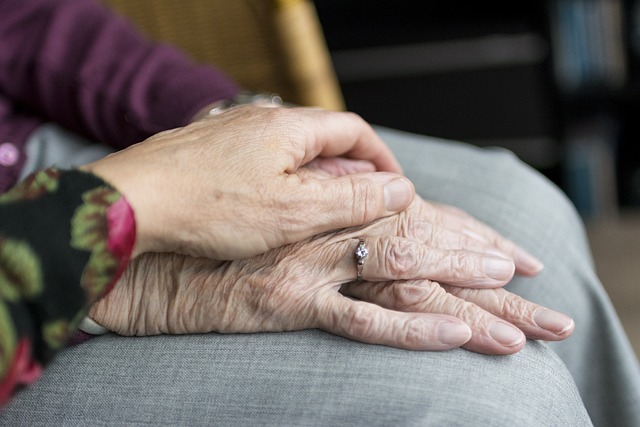
This Moodle Shell is a joined shell for GNUR 542 and GNUR 545.
GNUR 542: Clinical Skills and the Older Adult will facilitate the consolidation and application of nursing concepts, knowledge, and skills introduced throughout the program. Participants will have the opportunity to practice relevant psychomotor and interpersonal skills associated with the care of older adults with complex health challenges. Assessments will focus on skill proficiency, documentation, and relational practice competency.
GNUR 545: Nursing Registration Readiness Part II provides an opportunity for learners to apply and consolidate nursing knowledge and skills into simulated scenarios. The virtual simulations and hands-on interactive lab setting will assist learners in putting theory into practice in partial preparation for the NCAS objective structured clinical examination (OSCE) and/or completing the Canadian Nurses Association (CNA) gerontological nursing certificate, if desired. Scenarios will be based on the NCAS blueprints related to older adults which are aligned with the Canadian Gerontological Nursing Association (CGNA), BC College of Nurses and Midwives (BCCNM), and Canadian Association Schools of Nursing (CASN) competencies for nurse’s working with this population. Areas of focus include: knowledge-based practice (assessment, planning, provision of care, evaluation); accountability, responsibility and ethical behaviour; collaborative practice; and therapeutic relationships. This course builds on GNUR 535 and will provide further registration readiness support in a number of critical gerontological nursing skills and competencies.
Please note that each course is graded separately. Please refer to the course outlines for more details.

GNUR 540: Physical Aging and Chronic Disease Management Part 3. This is the last in the 3 Physical Aging and Chronic Disease Management courses. In this course we will continue exploring specific body systems and the effects aging has on various body functions. Additionally, we will explore common diseases, their contributing and mitigating factors and health management strategies.
- Teacher: Katrina Verschoor

Welcome to GNUR 548 Nursing Practice in Multiple Practice Settings! This course provides learners with the opportunity to explore the roles and responsibilities of nurses working with older adults in various settings. Participants will engage in interdisciplinary team collaboration in acute, long-term care, and community settings, explore community programs supporting healthy aging, and have opportunities to be health educators and mentors. Throughout this course, learners will apply principles of reflective practice, critical thinking and problem-solving, evidence-based practice, and compassionate, client centred care. Assessment will be based on entry-to-practice nursing competencies and BC College of Nurses ad Midwives Professional and Practice standards.
- Teacher: Amanda Ovington
- Teacher: Katrina Verschoor

GNUR 530: Physical Aging and Chronic Disease Management Part 2. This is the second of the 3 Physical Aging and Chronic Disease Management courses. In this course we will continue exploring specific body systems and the effects aging has on various body functions. Additionally we will explore common diseases, their contributing and mitigating factors and health management strategies. This course will be followed by GNUR 540 in semester 4.
- Teacher: Katrina Verschoor

MHAD 501: Mental Health and Addictions is a continuation of the study of mental health and addiction problems from a lifespan perspective, with a special focus on aging populations. The course is focused on a variety of rehabilitative and treatment modalities used in working with older adults. Attitudes toward mental health and substance use problems and how they impact helper effectiveness are explored in a supportive milieu. Evidence-based practices such as early detection, harm reduction and health promotion are used as frameworks for the development of skills and knowledge. Students are introduced to strategies to overcome stigma and support empowerment in a variety of community and facility settings.
- Teacher: Sargent Hayden

This supervised practice experience provides students with an opportunity to apply knowledge and skills from all courses in the program to-date with individuals living in a complex care setting. A portion of this nursing experience will be devoted to providing nursing care to individuals experiencing cognitive challenges and/or end-of-life needs. Opportunity will be provided for students to gain expertise and confidence with the role of the geriatric nurse within a complex care facility.
- Teacher: Liz Cleyn
- Teacher: Amanda Ovington
- Teacher: Amanda Rabello
This course focuses on the development of self-awareness, increased understanding of others and development of effective interpersonal communication skills that can be used in a variety of care giving contexts. Students will be encouraged to reflect on the impact of their own communication choices and patterns. They will have the opportunity to develop and use communication techniques that demonstrate personal awareness, respect and active listening skills.
- Teacher: Amanda Ovington
Palliative care is the unique way caregivers think, respond, and act as they give skilled and compassionate care to a dying person and the support system of that person. This course begins by helping each nurse understand their own personal and cultural perceptions of death and palliation by reflecting on their experiences with dying people. After exploring the concept of a Palliative Approach each participant will gain specific and current knowledge about symptom assessment and management, and how to deal with selected palliative emergency situations. Particularly unique aspects of caring for the dying, e.g, family care, communication, grief, and self-care will be explored.
- Teacher: Amanda Ovington
